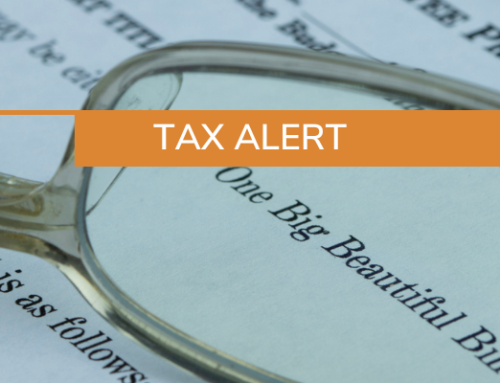By Edward Yoder, CPA, MSA
The Corporate Transparency Act is an anti-money laundering law designed to combat illegal finance activities through anonymous shell companies. In it, Congress added a new non-tax filing requirement for small businesses starting in 2024; more than 6.6 million filings are expected in the first year.
Corporations, LLCs, and other entities that were formed by filing a document with a Secretary of State or similar office (like articles of incorporation) are affected.
What Is the Beneficial Ownership Information Report?
The Beneficial Ownership Information (BOI) Report is a non-tax document listing identifying information about the filing entity. It is filed online with the Department of Treasury’s Financial Crimes Enforcement Network, or FinCEN. Taxpayers must provide the company’s:
- Full legal name and any trade or “doing business as” names
- Current and complete street address where the main place of business or headquarters is located
- Jurisdiction where the business was created
- Taxpayer identification number (TIN)
Additionally, each beneficial owner – someone who owns or controls at least 25 percent of ownership interests – must also report their full name, date of birth, current residential street address, identifying number*, and an image to prove identity.
*unique identifying number issued from either a U.S. passport, driver’s license, state ID, or a foreign passport
FinCEN has advised that the website to file a BOI Report will be live by the end of the 2023 calendar year.
There are two due dates affected companies must be aware of.
- Entities created before January 1, 2024: BOI report must be filed no later than January 1, 2025
- Entities created after January 1, 2024: BOI report must be filed within 90 days of receiving actual or public notice of the entity creation date. (The new deadline of 90 days after formation was recently updated from the previous 30-day requirement.)
This is a one-time-only filing requirement unless there are changes in beneficial owners or company information. When there are updates, the taxpayer must file an updated BOI form within 30 days.
Failure to file the BOI report will result in significant fines and penalties: civil fines of up to $500 per day per violation and criminal penalties of up to $10,000 and/or up to two years in prison.
Some types of organizations are exempt from reporting requirements.
Exemptions to BOI Reporting
There are several organizations that do not have to file a BOI report. Among them:
- Tax-exempt organizations
- Publicly traded companies and other entities that already have extra compliance requirements with the Securities and Exchange Commission (SEC)
- Banks and credit unions
- Accounting firms
- Money services businesses
- Securities brokers and dealers and pooled investment vehicles
- Insurance companies and state-licensed insurance producers
- Public utilities
If a tax-exempt entity fails to maintain its status under 501(c)a of the tax code, it will have 180 days to restore tax-exempt status. After that point, the entity would be required to file a BOI report. Not-for-profits thus have another reason to monitor unrelated business taxable income (UBTI) and calculate it correctly, as falling above a certain UBTI threshold can put an organization’s tax-exempt status at risk.
Large operating companies, defined as U.S.-based companies with more than $5 million in gross receipts or sales in the previous tax year and more than 20 full-time U.S. employees, are also exempt.
Some businesses are considered to be inactive and are also exempt from BOI reporting requirements. To qualify under this exemption, the business must have been formed before January 1, 2020 and:
- Owned (directly or indirectly, partially or wholly) by a U.S. person
- Maintained current ownership in the previous 12 months
- Sent or received funds of $1,000 or less in the previous 12 months
- Holds no assets or ownership interests in any corporation, LLC, or similar entity, either in the U.S. or abroad
For basic entities, filing the BOI report probably won’t take much time. FinCEN estimates that 59 percent of affected entities have a simple structure with one beneficial owner and applicant. But for the most complex entities, preparing the filing could take around 11 hours. After the first year of implementation, 12.9 million updated BOI reports are expected to be filed each year.
AICPA previously requested a delay in BOI reporting; if this happens, we will update clients as new information becomes available.
PBMares clients with BOI reporting requirements in 2024 are strongly encouraged to reach out to their tax advisor for additional guidance. For questions, contact Tax and Not-for-Profit Partner Ed Yoder.





